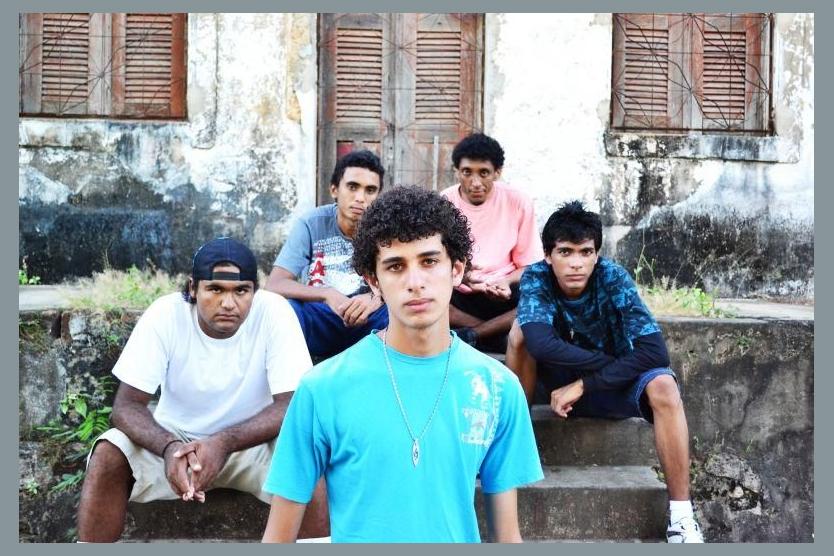 Dubby
Dubby
Dubby: The Journey of a Brazilian Reggae Band
Emerging from the vibrant streets of Rio de Janeiro in the early 2000s, Dubby has left an indelible mark on the Brazilian reggae scene. Fronted by the enigmatic vocalist, Marcus Daniel, the band has faced challenges, navigated controversies, and released a captivating discography.
Early Days and Breakthrough
Dubby's journey began in 2002 with the release of their debut album, "Aluno Aplicado." The album's title track became an instant anthem, propelling the band to national recognition. Dubby's unique blend of traditional reggae rhythms with Brazilian influences resonated with audiences, establishing them as one of the leading voices in the genre.
Challenges and Controversies
Despite their early success, Dubby faced several hurdles along the way. The band's outspoken lyrics and political stance often drew criticism from conservative groups. In 2007, they were accused of plagiarism after allegations emerged that they had copied a song from another reggae artist. However, Dubby vehemently denied the accusations, maintaining that the similarities were coincidental.
Discography and Evolution
Throughout their career, Dubby has released a string of acclaimed albums, including "Nação Regueira" (2004), "O Grito da Periferia" (2008), and "Sem Censura" (2012). Each album showcased Dubby's musical evolution, as they experimented with new sounds and incorporated elements of hip-hop, funk, and samba.
Members and Collaborations
Dubby's core lineup has remained relatively consistent over the years, with Marcus Daniel at the helm. The band has also collaborated with numerous artists, including Manu Chao, Natiruts, and Cidade Negra. These collaborations have further expanded Dubby's musical horizons and introduced them to a wider audience.
Impact and Legacy
Dubby's influence on Brazilian music cannot be overstated. They have helped popularize reggae in Brazil and paved the way for a new generation of reggae artists. Their songs continue to resonate with audiences, inspiring social and political consciousness. Dubby's journey is a testament to the power of music to transcend boundaries and unite communities.
Emerging from the vibrant streets of Rio de Janeiro in the early 2000s, Dubby has left an indelible mark on the Brazilian reggae scene. Fronted by the enigmatic vocalist, Marcus Daniel, the band has faced challenges, navigated controversies, and released a captivating discography.
Early Days and Breakthrough
Dubby's journey began in 2002 with the release of their debut album, "Aluno Aplicado." The album's title track became an instant anthem, propelling the band to national recognition. Dubby's unique blend of traditional reggae rhythms with Brazilian influences resonated with audiences, establishing them as one of the leading voices in the genre.
Challenges and Controversies
Despite their early success, Dubby faced several hurdles along the way. The band's outspoken lyrics and political stance often drew criticism from conservative groups. In 2007, they were accused of plagiarism after allegations emerged that they had copied a song from another reggae artist. However, Dubby vehemently denied the accusations, maintaining that the similarities were coincidental.
Discography and Evolution
Throughout their career, Dubby has released a string of acclaimed albums, including "Nação Regueira" (2004), "O Grito da Periferia" (2008), and "Sem Censura" (2012). Each album showcased Dubby's musical evolution, as they experimented with new sounds and incorporated elements of hip-hop, funk, and samba.
Members and Collaborations
Dubby's core lineup has remained relatively consistent over the years, with Marcus Daniel at the helm. The band has also collaborated with numerous artists, including Manu Chao, Natiruts, and Cidade Negra. These collaborations have further expanded Dubby's musical horizons and introduced them to a wider audience.
Impact and Legacy
Dubby's influence on Brazilian music cannot be overstated. They have helped popularize reggae in Brazil and paved the way for a new generation of reggae artists. Their songs continue to resonate with audiences, inspiring social and political consciousness. Dubby's journey is a testament to the power of music to transcend boundaries and unite communities.